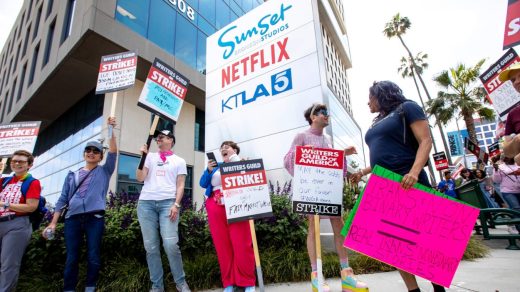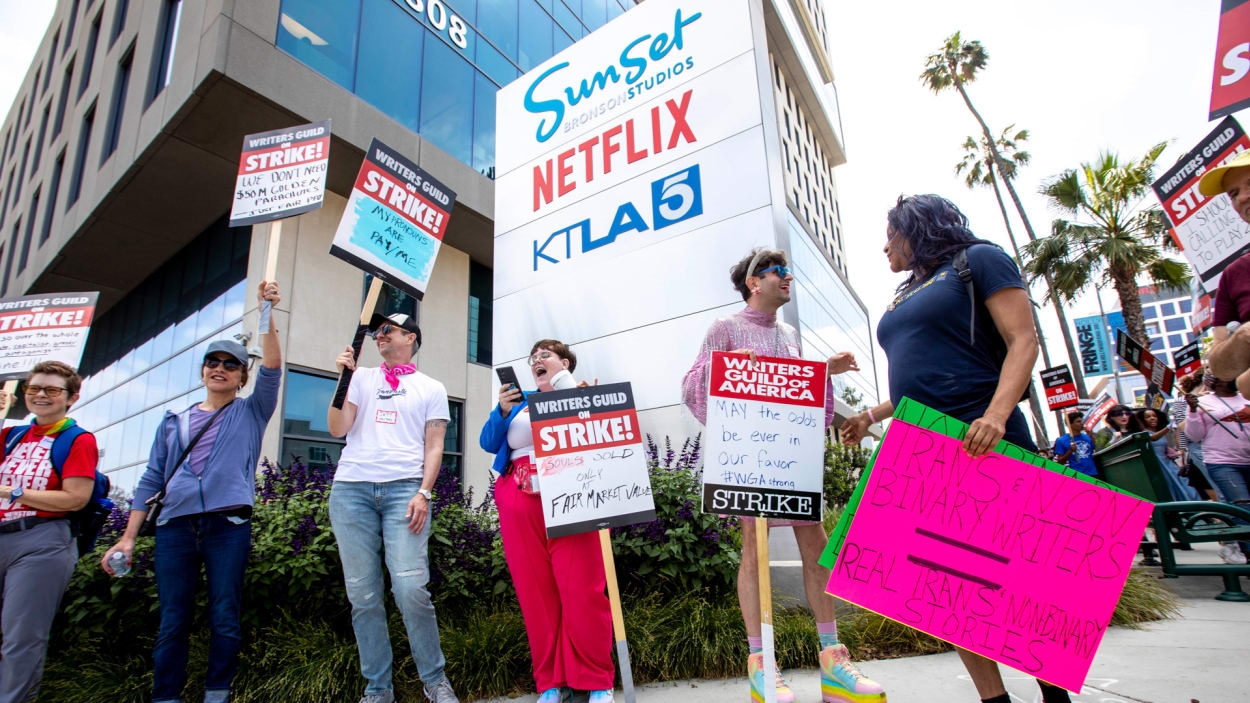How much is the writers’ strike costing?
Since the writers’ strike started on May 2, writers have written countless clever protest signs; TV shows including Abbott Elementary, Stranger Things, and Saturday Night Live have been stalled, and studios may have lost billions. Overall, measuring the exact cost of the writers’ strike can be difficult.
Days after the strike began, the stock value of major entertainment brands like AMC, Comcast, and Paramount dropped by an estimated collective $10 billion. Entertainment companies’ share prices continue to fluctuate, but if the strike continues, costs are expected to rise—for studios, striking writers, and local economies from Los Angeles to Atlanta.
Researchers estimate that the 100-day-long 2007 writers’ strike cost the California economy more than $2 billion. And today, the Writers Guild of America (WGA) estimates that the strike is costing California’s economy $30 million per day. (Fast Company is unionized through WGA East.)
Some have suggested that accepting the WGA’s proposal would ultimately be cheaper for studios. Others have said that entertainment execs are trying to drag out the strike “so that they can cancel deals they are about to have to shell out for, thereby fixing their bottom lines.”
Meanwhile, over 11,000 writers are on strike—meaning many are losing out on paychecks, jobs, and health insurance. Ultimately, these writers have decided the cost of not organizing is more expensive. In fact, a record-breaking 98% of WGA members voted in favor of going on strike.
Writers are on strike over shrinking pay, working conditions, and extreme vulnerabilities to AI.
Many writers have come forward with their stories of financial struggles while writing blockbuster shows. “Writers have seen their pay shrink in recent years, with more writers than ever earning contract minimums, and with streaming companies decimating residual-pay structures,” writes Fast Company staff editor Kristin Toussaint.
Adjusted for inflation, the median weekly pay for writers and producers has declined 23% over the past decade. Over the same time period, studios have reported increased entertainment profits. In 2000, Disney, Fox, Paramount, NBC, Universal, and Time Warner collectively brought in $5 billion in entertainment profits. In 2021, and with the addition of Netflix, that number grew to $28 billion.
Because of digital streaming, writers today also receive smaller residual checks than in the past. Traditionally, successful TV shows were sold between networks to the highest bidder. Today, studios often sell their own shows to their own streaming platforms. Writers say this often means smaller residuals.
Another issue concerning striking writers is the use of artificial intelligence, which studios have so far refused to agree to regulate. Of course, WGA members are not alone in their concerns about AI. According to Pew, 62% of Americans believe AI will impact workers. As Dialogue founder Rimma Boshernitsan explains, writers’ “grievances and conditions are a microcosm of the fundamental forces shaping the future of work.”
And of course, quantifying the future cost AI will have on workers inside the entertainment industry and beyond is not easily measured. Maybe it’s worth asking ChatGPT?
(16)



